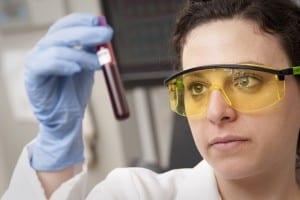UCL in the Middle East: crossing cultures
By ucyow3c, on 21 September 2016
![]() Written by Sophie Vinter, Global Engagement Communications Officer
Written by Sophie Vinter, Global Engagement Communications Officer
“When we talk about the Middle East we’re talking about many places and very different contexts – what goes for Qatar is not the same as for a refugee camp in Syria.”
The panel of the inaugural ‘UCL in the Middle East’ event nodded in agreement at the words of Dr Seth Anziska (UCL Hebrew and Jewish Studies), who was joining in a lively discussion by Skype from the USA.

Jonathan Dale (right) talks with attendees at UCL in the Middle East
Focusing on a range of contemporary issues – ranging from urban development and cultural heritage to healthcare and education – ‘UCL in the Middle East’ was the second regional-specific event that had been organised by Professor Ijeoma Uchegbu, Pro-Vice-Provost (Africa & the Middle East) and the Global Engagement Office. The first event, Knowledge Africa, took place in June.
Open to academics and professional services staff from around the university, these events have offered the opportunity to hear from a range of speakers, network and take part in panel discussions to share ideas and learn more about UCL’s collaborations in a specific area of the world.
Questions from the audience encouraged thought-provoking debate on some hot topics in the Middle East, including the balance of encouraging entrepreneurship while also allowing for intellectual property ownership and the idea of post-conflict ‘interventionism’.
 Close
Close




